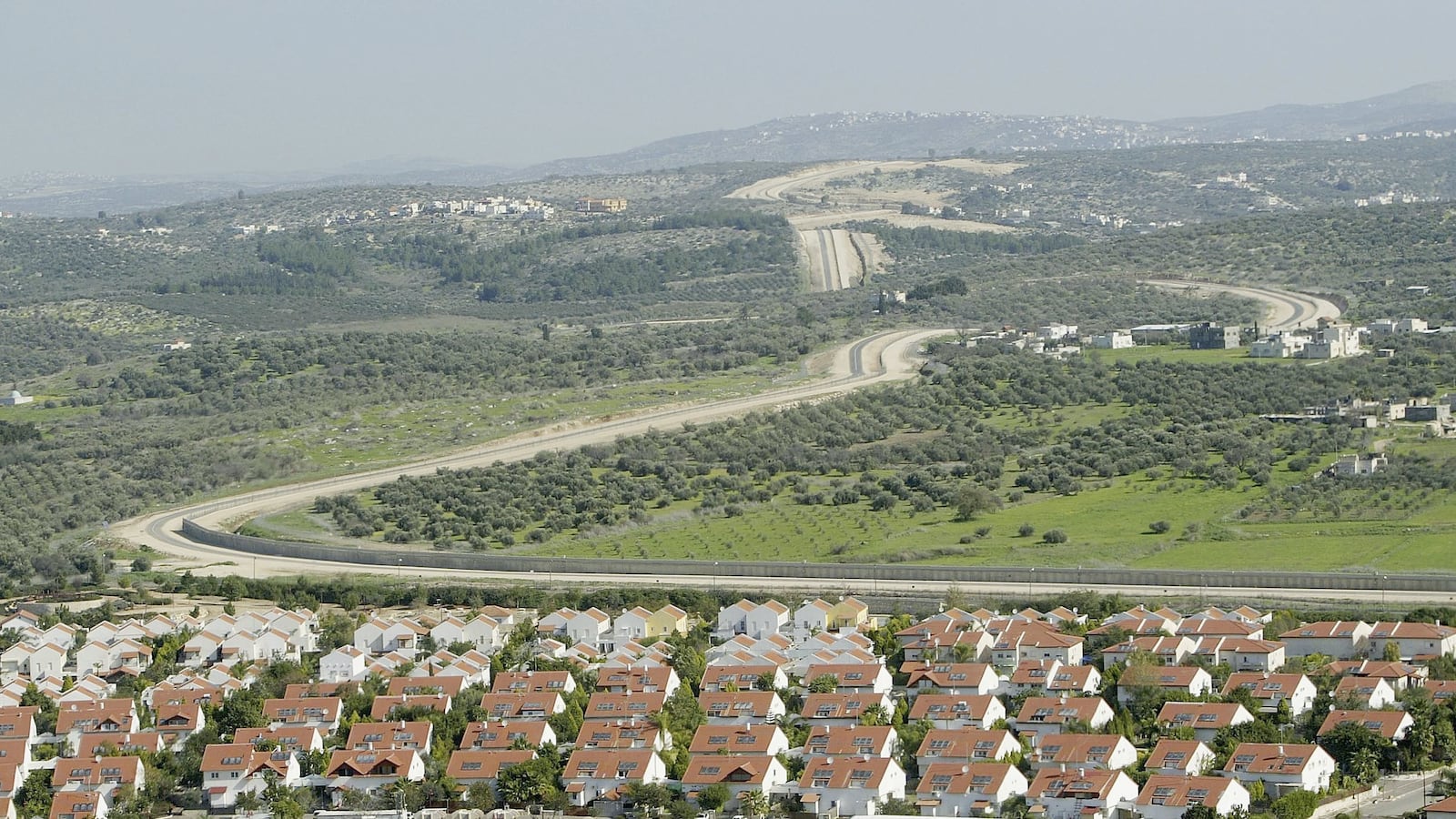Although the peace talks have barely begun, they are already showcasing the recurring pathologies that blame Israel unfairly and absolve Palestinians unduly. The Palestinians are playing the blame game with American help and Israelis are wallowing in their culture of guilt. Only one side had to make premature concessions before the negotiations even began—Israel by freeing legally-convicted murderers. Only one side incurred the world’s wrath for contemplating the natural expansion of its own communities—Israel, seemingly stirring more outrage for building homes for its citizens than the Egyptians or Syrians do for massacring theirs. And only one side seems to be found perpetually guilty by progressives, accused of outrageous atrocities—with one Open Zion talkback to a recent article of mine claiming it was trying to “exterminate” the Palestinians—Israel.

Underlying this pile-on against Israel is the increasingly widespread but wrongheaded assumption that the 1967 borders are holy and reflect a clear division between Israeli territory and Palestinian territory. This sanctification of the hastily-improvised 1949 armistice lines mocks history, distorts international law, and threatens the creation of a two-state solution, which will only work if it builds upon a foundation of mutual respect rather than perverse demonization of only one side in this complicated conflict.
Anyone who knows anything about history, especially of the twentieth-century Middle East, knows that the borders shifted and populations drifted. Neither the Palestinians’ nor the Jews’ love of the land and claims to the land follow the complicated twisting border drawn in green pencil to end the 1949 war, which is what this “holy” 1967 border is. Making things even blurrier, after the 1948 war ended, there was no Palestinian state established in the West Bank or Gaza—Jordan controlled the West Bank, without formal international approval, and Egypt controlled Gaza, without formal international approval.
The borders established in 1949 (which were the borders at the start of June 1967) were therefore particularly arbitrary—with Arabs and Jews asserting claims and counter-claims every which way. Just as Palestinians do not believe they forfeited their rights to the land Israel won in June 1967, how can they argue that Jews forfeited their rights to the West Bank when it was not part of Israel after 1949? Jews continued to pine for the Jewish quarter of Jerusalem, for the overrun settlement (meaning community) of Gush Etzion, for the ancient Jewish city of Hebron.
I reject the one-way logic. Somehow, Palestinian claims are enduring all over the land, and exclusive in the West Bank; Jewish and Israeli claims are grudgingly accepted within the Green Line, pre-’67 borders—and denied completely beyond.
Legally, it was only in the late 1970s, thanks to the biased United Nations, that the Fourth Geneva Convention was invoked, treating Israel as a so-called “occupying power” in the territories it now controlled post-1967. The critique offered in Security Council Resolution 446 of March 1979—and many others—that Israel “as the occupying Power,” was compelled “to desist from taking any action which would result in changing the legal status and geographical nature and materially affecting the demographic composition of the Arab territories occupied since 1967, including Jerusalem, and, in particular, not to transfer parts of its own civilian population into the occupied Arab territories” was absurd. The Fourth Geneva Convention in 1949 sought to prevent a recurrence of Nazi Germany’s Hitlerian crimes of conquering a country (which the West Bank wasn’t), and transferring its own citizens, often involuntarily (when Israeli settlers volunteer), as part of a brutal colonialist occupation and often an extermination campaign. Using European imperialist words like “colonialist” and “occupation” for the more ambiguous situation in the Israel-Palestine border dispute distorted the area’s murky history and legal status. This misapplied law misled many, especially radical Europeans, into thinking that Israel was both colonialist and Hitlerian in its actions—when, among other facts, the Palestinians population has practically quadrupled since 1967.
Moreover, despite the recent convenient, politically correct mistake in the New York Times—which the Times quickly corrected—the United States has not joined the international pile-on declaring Israel’s settlements illegal (thought it has in the past) due to this misreading of history and the Fourth Geneva convention. The Times noted the U.S.—incorrectly—considers the settlements "illegitimate."
I offer this brief historical and legal summary as a way of arguing for the two-state solution and in hopes that that these negotiations will succeed. I respect Israelis who say, “Yes, we have legitimate claims to the West Bank but would sacrifice territory for peace”—that shows a commitment toward peace far greater than those who would relinquish territory they never believed Israel deserved. Moreover, while I acknowledge that Israeli governments have argued about what the territories’ legal status is, the only way to make progress is to end the blame game, bury the historical counter-claims, and start with the demographic status quo.
I concede Hebron to the Palestinians despite it being one of the four holy cities to Jews, despite the evils done to Jews in the 1929 riots that ended centuries of Jewish live there, because in 2013, Arabs outnumber Jews there by 300 to 1. Israel should never renounce its historical, legal, or sentimental ties to Hebron. Instead, understanding that two people are in love with the same land, the borders of a two-state solution have to minimize the number of people displaced, maximize the viability of both new entities, and try to give both countries enough so that they are happier with what they have than what their radicals delude them into believing they could get. Only with this kind of mutual respect, mutual recognition, and mutual flexibility, will we start inching toward peace. Demonizing Israel, as the opening assumptions of these talks implicitly do, feeds into the blame-game against Israel, gives Palestinians a free pass they don’t deserve and makes that day harder to reach.





